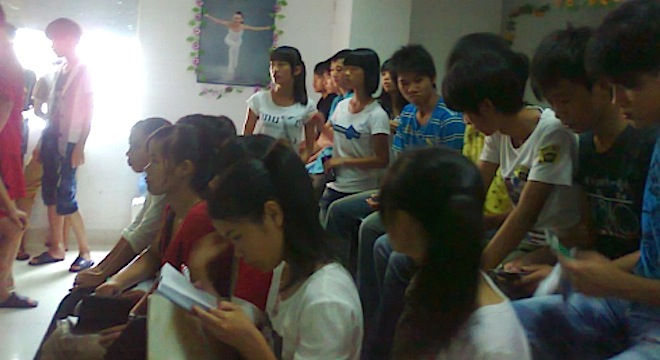South Korean electronics giant Samsung has some of its most popular products assembled by Chinese supplier HEG Electronics (Huizhou) Co., Ltd.
Now a new report from advocacy group China Labor Watch alleges that one HEG factory near Guangzhou, China, engaged in “prevalent” hiring of child laborers under the age of 16 and “student laborers amount to 80% of the total workforce.” According to the report:
“These children were working under same harsh conditions as adult workers, but were paid only 70% of the wages when compared with the formal employees. Moreover, these child workers were often required to carry-out dangerous tasks that resulted in injury.”
The report says HEG’s factory “provides neither a health clinic nor first-aid kits in workshops or dormitories,” according to the report, which later states: “The company essentially offers no medical protection measures.”
Samsung responded to the new report, providing TPM the following statement:
“Samsung Electronics has conducted two separate on-site inspections on HEG’s working conditions this year but found no irregularities on those occasions. Given the report, we will conduct another field survey at the earliest possible time to ensure our previous inspections have been based on full information and to take appropriate measures to correct any problems that may surface. Samsung Electronics is a company held to the highest standards of working conditions and we try to maintain that at our facilities and the facilities of partner companies around the world.”
Samsung’s chief rival in smartphones, Apple, was earlier in 2012 reported to be enabling massive labor rights violations by one of its suppliers, Foxconn, a Taiwanese company with factories in China. Apple later commissioned a third-party audit of the factories which found systematic labor rights violations and both Apple and Foxconn promised to implement higher wages, more safety measures and to generally improve conditions.
Samsung, unlike Apple, does not make the contents of its internal reviews on labor conditions public.
(H/T: Gizmodo)






